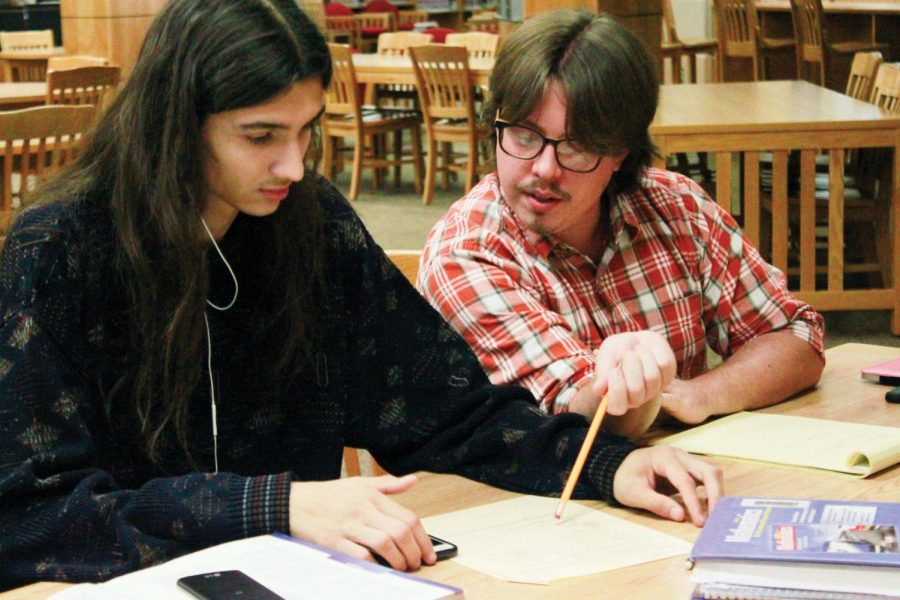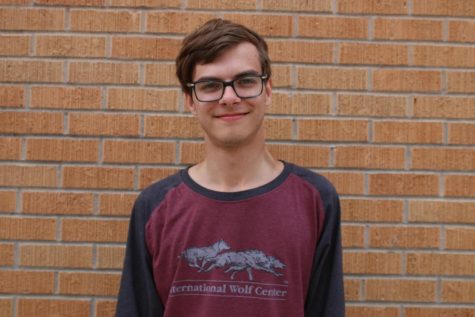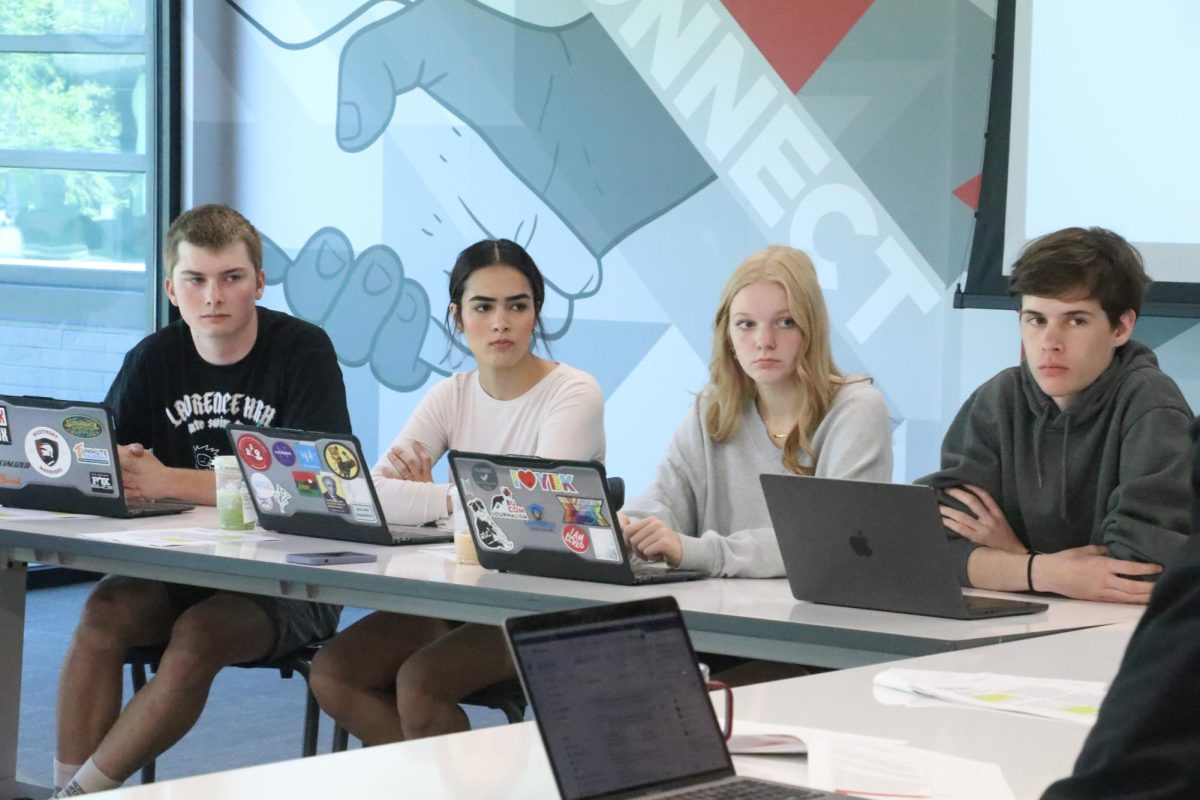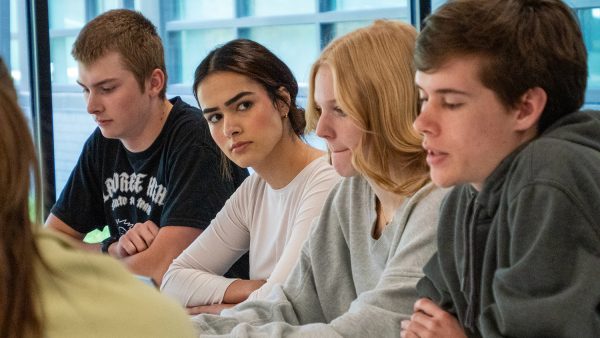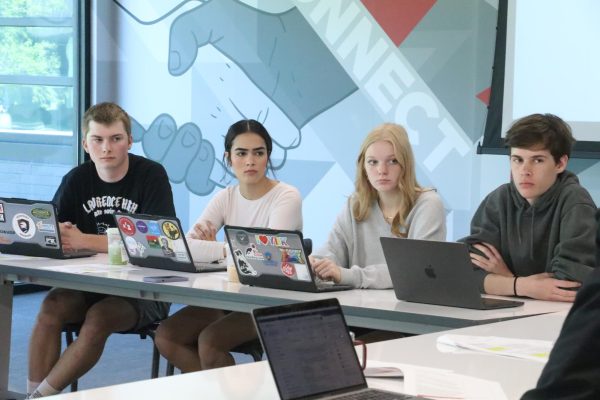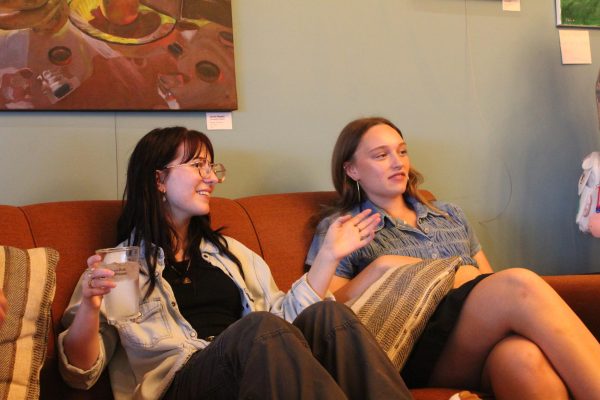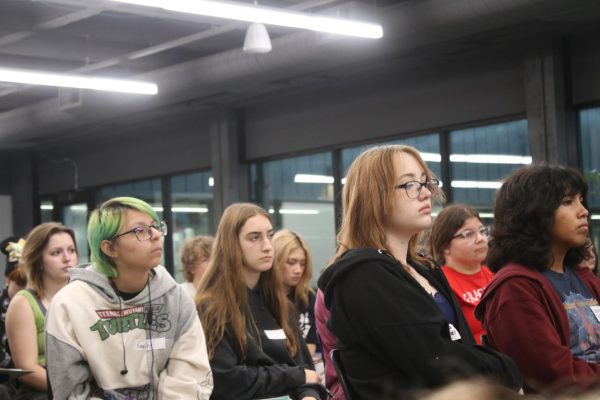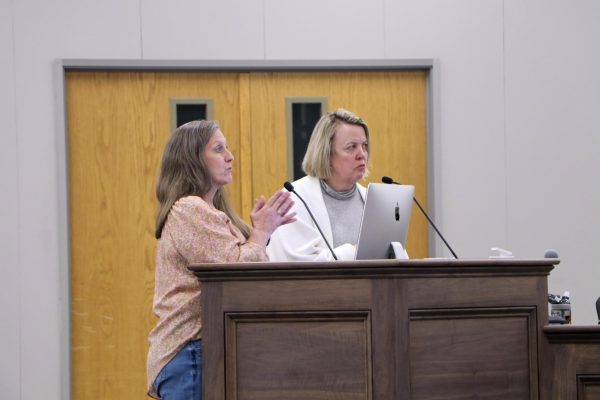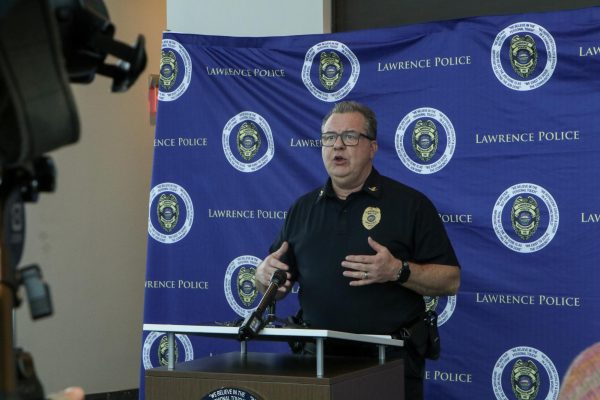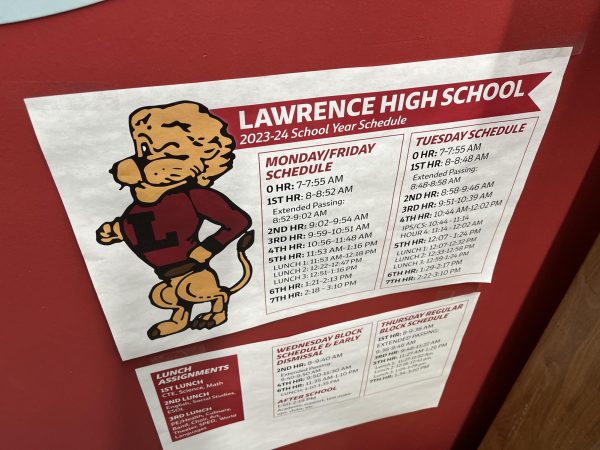Paraeducators wanted
Low pay and few benefits causes shortage of paras
Paraprofessional Quinton Cheney helps senior Ray Haskett work through a test for Haskett’s Senior Consumer Math class. “I get to bounce around between subjects,” Cheney said of his job as a para. “I get to learn from teachers while I help the students. It can be very humbling.”
September 21, 2018
Preceding the start of the school year, the Paraeducator Association of Lawrence (PAL) took another step toward equalizing the workplace.
In July, PAL voted to become an independent organization from its associate group, the KNEA.
The decision to become independent from KNEA, which has remained an ally since the group’s foundation, was prompted by the constant fluctuation of employed paras in the district. An insufficient living wage, which was one of the founding grievances of PAL, causes membership to be too inconsistent to meet goals.
“Because we have so much flux in para positions, it is hard to reach and maintain the numbers needed to get to the next level, which is being recognized by the Board of Education,” PAL executive board member Denise Fish said.
…a concern not only in Lawrence but across our nation
— Samrie Devin, usd 497 director of human resources
Current pay grades and lack of work benefits contributes to the large number of current openings for classified staff in the district, with more than 30 openings for paras alone. USD 497’s director of human resources Samrie Devin believes this hiring pattern reflects a problem common throughout the United States.
“[The] shortage of special education certified staff is [a] concern not only in Lawrence but across our nation,” Devin said.
In order to improve financial conditions for paras, some suggest pushing for better wages. PAL uses this tactic in tandem with the Lawrence Educators Association (LEA) in hopes of garnering more benefits from the state, which provides most of the funding for public education.
“The state of Kansas continues to underfund education, which directly affects the district’s ability to pay competitive (let alone adequate) wages for teachers and paraeducators,” LEA treasurer and board member Lindsay Buck said.
Buck also overseas special education at Lawrence High as the department chair. Her connection to paras in the school and the rest of the district optimized the relationship between PAL and LEA, both of which seek better financial situations as a way to better provide for the students.
“As special education department chair, my role is similar to all other department chairs in the district,” Buck said. “We are liaisons between our departments and other departments,administration and district personnel.”
Since the beginning of the school year, PAL has met several times to recruit and to hear new voices from within the district, advertising on the namesake Facebook page. Expanding membership has been a top priority for the group, especially since the separation from the KNEA. Even with this opportunity, many paras simply could not afford the commitment of membership.
“We constantly heard that although they supported the association, they just could not afford to join,” Fish said.
As of right now, the organization focuses on those who work directly with students to provide the greatest reach. By doing this, the priority stays with improving the experience of the students while making wages more liveable in a large group of staff.
“Although money is a challenge for most paras, they continue to teach because of their love of students success,” Fish said. “ We hope to expand that in the future to include all classified staff but that takes time.”



